

HOME STRETCH






More thankful than ever this year, especially that I’m not a Trump Cabinet member

DAVE PERRY Editor
Here’s progress: While the American Puritans are credited with getting the whole Thanksgiving thing rolling here in the New World, they lost control of the holiday soon after.
That was good news. That meant that the holiday soon became focused on the feasting part of Thanksgiving rather than the fasting part. How football and cheap TVs worked into the whole equation is more complex than atom splitting at CERN.
I’m thankful I don’t have to understand it all myself, and there’s even more I’m thankful for this year that’s easier to wrap your head or bacon around:
• I’m thankful that I’m either still agile enough or stealth enough when I climb my 30-foot ladder to empty the roof gutters of leaves that none of my neighbors call 911 or my wife.
• I’m thankful I spend most of my waking hours in a community where no one notices that the lady bagging groceries is wearing a hijab.
• I’m thankful that I never grew out of being 9 years old and think most of everything is funny.
• I’m thankful that as exhausting as rightwing extremism is, I’m never too exhausted to just accept it.
• I’m thankful for friends who laugh at my jokes.
• I’m thankful Donald Trump apparently sleeps some of the time.
• I’m thankful I have the screechy cicada-like tinnitus and not the roaring, whoosh-
ing version.
• I’m thankful that I have found a way to live without plastic grocery bags after going through a period when I was seriously worried I might not make it.
• I’m thankful my family no longer cares that I refuse to serve turkey at Thanksgiving and do things to an animal carcass in the sink that would require confession or legal defense if they happened any other way.
• I’m thankful that Comcast officials will surely suffer from a virtual plague of ailments and unfortunate events after collecting the world’s worst karma for years.
• I’m thankful my addictions to extravagant foods, wines, brews and coffees don’t require me to shoot them up or hunt down a supplier who never takes off his coat.
• I’m thankful I can’t smell whatever is in my car that my wife and daughter can.
• I’m thankful that there are now more microbreweries and tap houses per capita in Colorado than anywhere else on our odd little planet. And this year, I’m especially thankful for Dry Dock’s Schwarzbier and eternally grateful for Left Hand Nitro Milk Stout.
• I’m thankful that police radar and body cams can’t read my thoughts as I imagine all the horrible things that happen to the ass-hats on Interstate 225 during rush hour every morning and every night.
• I’m thankful people in most of the world see Donald Trump as something forced upon us that we must suffer, rather than something we have forced upon the planet that everyone but us must suffer. As bad as he is
for the world, he’s ever so much worse for us.
• I’m thankful that, unlike cheap bourbon whiskey, cheap Irish whiskey is totally drinkable.
• I’m thankful I neither say, understand nor must suffer, “the shoe is on the other foot.”
• I’m thankful that most of my friends and family members I see each year at Thanksgiving understand that the turkey dinner thing is actually a cruel practical joke played on Americans by early pioneers.
• I’m thankful for the scientific method, that I understand it and I stand behind it.
• I’m thankful that my tolerance for physical pain has increased proportionately with my advancing age.
• I’m thankful you actually can buy happiness, often from the remand bin in the back of the grocery store, and that I sometimes have enough money to prove that out.
• I’m thankful that I have perfected the ability to make it appear that I’m listening and enjoying someone blathering at me, or that I think I’ve perfected that skill and others are happy to not point out the opposite, or that I also have the ability to tune those complaints out, too.
• I’m thankful that bell bottoms, skinny jeans and jock-socks with stripes aren’t marketed or even legally sold to my age group.
Follow @EditorDavePerry on Bluesky, Threads,Mastodon,TwitterandFacebook or reach him at 303-750-7555 or dperry@ SentinelColorado.com






BY CASSANDRA BALLARD, Sentinel Staff Writer
The Aurora City Council member who promoted the
people associated with Venezuelan and other gangs were criminally active in those apartment complexes. City and court records show criminal and public safety problems at the apart-
Aurora city lawmaker said Trump team contacting her about ‘Operation Aurora’
Aurora City Councilmember Danielle Jurinsky, Center, at the Nov. 14 Public Safety Committee meeting where she said she had been contacted by incoming Trump Administration officials about implementing “Project Aurora,” mass deportations.
SENTINEL VIDEO SCREEN GRAB.
disputed Venezuelan gang narrative that drew Donald Trump to Aurora in October told city officials the president-elect’s administration has contacted her about implementing mass deportations.
“Operation Aurora is coming,” Councilmember Danielle Jurinsky said during the Nov. 14 meeting of the Aurora City Council Public Safety meeting. “On a very serious note, there seems to be a disconnect with the incoming administration and the City of Aurora. So I hope that we are taking this seriously.”
Jurinsky promoted what police and city officials have repeatedly said was a false-narrative on local and then national right-wing radio and TV programs about Aurora apartments and parts of the city being overrun with Venezuelan gang members.
Police have repeatedly said Jurinsky’s claims are inaccurate, and that no Aurora apartment buildings, neighborhoods or streets are “overrun” by Venezuelan or any gangs. Jurinsky’s critics called the allegations anti-immigrant rhetoric.
Jurinsky’s Fox News TV appearances caught the attention of then-presidential nominee Trump. He and running mate JD Vance exaggerated the claims further, insisting all of Aurora was overrun by Venezuelan gangs.
Police say three Aurora apartments were neglected by owners and that a small number of
ments go back years, long before a large influx of Venezuelan immigrants to the metro area.
Trump eventually called for a federal “Operation Aurora” to root out and deport undocumented immigrants from the city, and across the nation, during a campaign rally Oct. 11, “starting right here in Aurora.”
Since his election, state and local leaders have been pressed by the media about how they will react to a federal mass deportation plan. The incoming Trump administration has named leaders of the project but publicly released no details about when or how it would be implemented.
At the end of the Aurora committee meeting, Jurinsky said the forming Trump Administration wants contact with Aurora.
Jurinsky also suggested having Aurora Police Sgt. Marc Sears appointed as a police department leader for Operation Aurora. Sears leads one of two Aurora police unions, the Fraternal Order of Police. Jurinsky said she was confident in his ability to spearhead the initiative. It’s unclear what role local police would play in mass deportations. Aurora police Chief Todd Chamberlain has said using police to enforce federal immigration law would put the community at risk. In Colorado, police are by law precluded from enforcing immigration law and participating with federal immigration officials in arrests.
She asked city administrators whom she should refer Trump Administration officials to.
“I just want to know who I should coordinate with, because there seems to be a really big disconnect with the incoming administration and city leaders, and I know that some of that is personal,” she said. “If someone can tell me, who should I direct the phone calls.”
City Attorney Pete Schulte said queries should come to him and City Manager Jason Batchelor.
Aurora is a council-manager form of government. City lawmakers are precluded from participating in day-to-day city operations or directing city business outside of city council meetings.
Jurinsky came under fire from some fellow city lawmakers three years ago when her appearances on right-wing talk radio stations and internal police conversations she held with police officials and rank-and-file members led to a censure vote on the city council. The Aurora Sentinel is embroiled in a lawsuit now before the Colorado Supreme Court in an effort to retrieve recordings of a close city council meeting, ending censure the censure proceedings and leading to a $16,000 payment to Jurinsky for legal fees.
Regarding Jurinsky’s interaction with the incoming Trump administration, city manager officials said Thursday they were aware only of what Jurinsky made public last week.
“We, at the city, are only aware of what was said toward the end of the Public Safety committee meeting the other day,” Ryan Luby, deputy director of communications said in an email. “We do not have any other information or update to provide beyond what was mentioned.”
Two days after the Nov. 15 committee meeting, Jurinsky posted on social media in response to a post by Aurora Democratic Congressperson Jason Crow that he would protect all Aurora and state residents from federal overreach in implementing Operation Aurora.
“Nothing and no one will stand in the way of Operation Aurora commencing in Aurora. Citizens and non citizens have suffered enough. It ends now!” Jurinsky said her post on X.
Officials from the Trump transition team did not immediately respond to requests for comment.
AROUND AURORA
Aurora lawmakers narrow list of 34 city council vacancy applicants to 3
Aurora City Council chose three finalists Nov. 18 from among 34 applicants to fill a vacant at-large council seat following the resignation of Councilmember Dustin Zvonek on Oct. 31.
Zvonek stepped down citing family concerns and his new role at a political lobbying firm. The council is expected to name his replacement in December, with the appointee serving the remainder of Zvonek’s term, which ends next fall.
The finalists, who will be interviewed Dec. 2, bring diverse professional backgrounds and civic engagement experience to the table. Here’s a closer look at the contenders:
Danielle Lammon: Republican from 80016. She is the CEO of Buddy Publishing and the agency owner of Danielle Shannon Insurance Agency. She has a BA in Biology and Psychology at Metropolitan State University of Denver. Lammon serves on the BPF Imagination Library Aurora, Imagination Library Colorado, Spina Bifida Association of Colorado and CIPA Education and Literacy Foundation. In her application, she said she is committed to enhancing public safety through supporting police and fire departments. She also said she comprehensively understands the city’s budget from serving five years on the Citizens’ Advisory Budget Committee. Two notable references are Mordecai Brownlee, the president of Community College Aurora and Naomi Colwell, the president and CEO of Aurora Chamber of Commerce.
Amsalu Kassaw: Republican from 80016, is a lieutenant at Geo Group INC. for Immigration and Customs Enforcement (ICE). He is also the public relations director for the Ethiopian American Civic Council and was selected as Aurora’s 2024 Community Spirit Service Award recipient. Kassaw said he is a community organizer, human rights advocate and public servant. He said he volunteers for community grassroots services and believes public service is essential for the city to serve the people he cares about. Two notable references are Priscilla Rahn, a teacher for Denver Public Schools who ran for Douglas County Commissioner, and Hanna Bogale, an Ethiopian-American entrepreneur who ran for Aurora City Council.
Jonathan McMillan: Unaffiliated from 80011, is the director of firearm-related harm and violence prevention at Trailhead Institute. He previously worked as the director of Gun Violence Prevention for the State of Colorado Department of Public Health & Environment. Before that, he was the director of youth violence prevention for the City and County of Denver, Office Of Children’s Affairs. He serves on the State of Colorado Justice Assistance Grant Board, the Denver Crime Prevention and Control Commission and the Denver District Attorney’s Community Advisory Board. Two references were previous Denver Mayor Michael Hancock and current Denver Mayor Mike Johnston.
— Cassandra Ballard, Sentinel Staff Writer
Aurora council reverses decision, again, on repealing city employee tax
In a surprisingly less contentious city council meeting, Aurora council members on Nov. 18. did an about face and ended a weeks-long debate on repealing the city’s occupational privilege tax or “head tax.”
Councilmember Françoise Bergan’s motion to table the repeal ordinance indefinitely passed 5-3, with Councilmembers Alison Coombs, Curtis Gardner and Crystal Murillo opposed.
“I believe in principle,” Councilmember Stephanie Hancock said. “The occupational tax was repealed, and the council voted on it, and I don’t believe we should go back on our promises.”
The long debate has centered
around Aurora’s occupational tax, which requires employees and their employers to each pay $2 per month per employee. The tax was initially intended to help fund city services for workers who might not contribute through other taxes. It generates an estimated $5.9 million annually.
Earlier this year, city lawmakers voted to repeal the tax, citing its financial and administrative burden, particularly on small businesses. The tax was supposed to end in January 2025. However, concerns about losing nearly $6 million in annual revenue have since reignited debate over the decision.
Bergan recently proposed keeping the tax indefinitely to address pressing public safety needs. She said that Aurora’s rapid growth, particularly in the northeast and southeast, requires the construction of two new fire stations.
Bergan suggested using the tax revenue to fund these projects and later support the city’s broader public safety budget.
In response, Councilmember Dustin Zvonek introduced a compromise to delay the repeal until June 2025. He also proposed a resolution to explore alternative funding methods for the fire stations, such as budget cuts or replacing the tax with a new revenue source.
“It’s extremely disappointing that we’re in this situation of not having been able to decide that we need to have these $6 million in our budget,” said Coombs. “It’s disappointing that we are continuing to decide that this is what’s best for our city when we know that we are consistently under budgetary constraints.”
Councilmember Danielle Jurinsky opposed bringing the tax back and said in multiple meetings she would find funding for the fire stations and additional public safety funding elsewhere.
Neither she nor any other council member offered alternative funding or cuts for funds to build and operate the fire stations.
— Cassandra Ballard, Sentinel Staff Writer
Aurora state Sen. Janet Buckner resigning, citing health, family concerns
Aurora Democratic state Sen. Janet Buckner announced Nov. 21 she is resigning her just-won Aurora legislative seat, citing unspecified health and family concerns.
“After a personally challenging year, it is time for me to step aside and prioritize my family and health,” Buckner said in a statement. “I am grateful to my constituents in Senate District 29 for their trust, and to my colleagues in both the House and Senate who have graciously supported me. I leave with full confidence that SD29 will continue to thrive under thoughtful and dedicated leadership.”
Buckner ran unopposed to a second term in for the seat in November.
“My journey in public service began nine years ago after my husband, John, passed away, and it has been a joy and honor to build on his legacy and forge a path of my own,” Buckner said. “I am extremely proud of the work he and I did to ensure that every child has access to a quality education and every Coloradan has the opportunity to succeed.”
Buckner told CPR News she made the decision after the election, “in consultation with her family, to prioritize herself and mentor the next generation, especially other Black women. She said President-elect Donald Trump’s victory also played a factor in her decision.”
“As a woman of color I have crossed so many barriers, so the presidential election did make me think deeply about what I’m going to do with the rest of my life,” she told CPR reporter Bente Birkland.
She followed John Buckner into the Legislature after his death, when she was appointed to his House seat in 2015. She was elected to the seat the following year and won a state Senate seat in 2020.
Buckner talked about her husband’s death and a wide range of issues, including life a Black female legislator in a column written earlier this year for the Sentinel.
“I’ve carried over the mission to lift up Black and historically under-served communities into all areas of my work,” she wrote. “From improving maternal health care, to ensuring all Colorado kids have access to quality, free preschool, to making Juneteenth a state holiday, at the core of all of my legislation is a commitment to Black, brown and underserved communities and ensuring they have the resources, recognition, and opportunity they need to thrive.”
Polis said she was a strong voice for several causes at the Capitol.
“Janet Buckner is a friend and champion for the people of our state and Aurora,” Gov. Jared Polis said in a statement. “From her focus on issues like free preschool, education, saving people money on health care and so much more, she has put the people of Colorado first.”
Arapahoe County Democratic Party officials said a vacancy committee will meet Monday, Jan. 6 to select a replacement for Buckner. The time and place are still undecided. The first day of the 2025 Colorado legislative session is Jan. 8.
The abrupt resignation has resulted in a flurry of concern among both Democrat and Republican party officials. Both parties have called for changes in election law and requirements for special elections, in an effort for on party to hand over the seat to another party member without voter input.
Denver state Sen. Chris Hansen also won re-election to his Denver state Senate seat and announced, abruptly after victory, that he would resign and move to the Western slope for a job, according to CPR and other reports.
“The growing number of senators and representatives of both parties serving in office as a result of vacancy committee selections and not traditional elections should concern every Coloradan, and it certainly concerns me,” Democratic Party Chairperson Shad Murib said in a statement.
— Sentinel Staff
Aurora police release first annual use of force report; 11% of arrests involved force
The Aurora Police Department published its first annual Use of Force Report, for 2023, showing a steady level of incidents, still mostly involving Black people and other minorities.
The report outlines key data, policy updates and training initiatives to enhance transparency and accountability. The report offers a detailed analysis of use-of-force incidents, officer and subject demographics and comparisons to previous years, providing the community with greater insight into police operations.
The issue of use of force by police pushed APD into the international spotlight after the death Elijah McClain at the hands of police and fire-department medics in 2019.
Aurora Police, city administrators and the Colorado Attorney General’s office entered into a consent decree two years ago, requiring a variety of police reforms, many because of “patterns and practices” of abusive force problems, most involving people of color.
“Following the launch of the Online Transparency & Accountability Portal in January, publishing this annual report is the logical next step in our commitment to transparency and broader information sharing with our community,” Deputy Chief Chris Juul said in a statement.
The report highlights significant trends in use-of-force incidents:
Lethal use-of-force events dropped to four in 2023, down from 13 in 2022 and eight in 2021.
Low-level force, such as physical control techniques, accounted for over 80% of incidents across 2021, 2022 and 2023.
Use-of-force incidents occurred in 11.2% of arrests in 2023, slightly higher than 10.4% in 2022 but lower than 12.6% in 2021.
Use-of-force events represented a consistent percentage of total calls for
service, ranging from 0.1% in 2021 to 0.3% in 2023.
Use of force on the Black or African American people was still high in 2023. According to the report, 757 incidents of use of force were reported involving 791 subjects. Of those, 309 identified as Black or African American, 235 identified as white or European and 173 identified as Hispanic or Latino. 54 were people whose race and ethnicity were unknown or not specified.
Only about 16% of the city’s population is Black, according to U.S. Census records.
Aurora police reported a 20% increase in total use-of-force incidents, from 627 in 2022 to 757 in 2023, partly attributed to increased public interactions post-pandemic and the broader definition of “use of force” adopted in Colorado in 2021.
“The new legislation predominantly took effect in mid- to late-2021, at which time low-level use of force numbers began to rise because of the new “overcoming resistance” definition and agencies adoption of that standard,” the report stated.
Intermediate responses, including Tasers and chemical agents, accounted for 16% of use-of-force incidents, while lethal responses decreased significantly to 0.5% of incidents, reflecting a shift toward de-escalation and non-lethal tactics, the report states.
Officers applied force in 3.57% of investigatory contacts and 11.2% of arrests. Training enhancements in 2023 included scenario-based de-escalation programs like Integrating Communication Assessment and Tactics (ICAT) and peer intervention training through the Active Bystandership for Law Enforcement program.
“We recognize as an agency the importance of capturing and analyzing use-of-force information in the spirit of continuous improvement and enhancing public safety services for our residents,” Juul said in a statement.
The full report is available on the Aurora Police Department website under the “Public Reports & Crime Data” tab.
— Cassandra Ballard, Sentinel Staff Writer
COPS AND COURTS
Aurora man faces charges after being shot by teen during domestic violence episode
An Aurora man is facing numerous charges following a domestic violence incident Nov. 21 that escalated into gunfire, leaving him and an unidentified woman injured, according to a statement by Aurora Police.
The suspect, 39-year-old Jason Woolley, remains hospitalized with non-life-threatening injuries sustained during the altercation, police said in a statement.
Police said he would be transferred to the Aurora Municipal Detention Center upon his release and faces multiple domestic violence and weapons-related charges.
Officers responded to reports of a shooting at about 10:45 p.m. Nov. 21 at the 3100 block of South Norfolk Avenue. Police said Woolley was involved in a violent domestic incident with a 39-yearold woman, and that Woolley was allegedly armed with a stolen handgun during the altercation.
The situation escalated when a 17-year-old male intervened, leading to gunfire. Woolley was struck multiple times, while the woman was inadvertently hit once, police reported. Both Woolley and the woman were transported to nearby hospitals for treatment. The woman has been treated and released, while Woolley remains in the hospital.
Woolley faces charges that include domestic violence and illegal possession of a stolen firearm. Investigators are still piecing together details of the incident, but authorities said the 17-year-old will not face charges, the statement said.
Police have withheld the names of both the 39-year-old woman and the
17-year-old because the police do not identify domestic violence survivors nor minors involved in incidents, police said. Police said anyone with information can call Metro Denver Crime Stoppers at 720-913-7867. Tipsters can remain anonymous and still be eligible for a reward of up to $2,000, police said.
— Sentinel Staff
Argument
between
2
men
in Aurora apartment
escalates to gunfight, 1
injured
An unidentified man was injured Nov. 24 after an argument between him and another man escalated into a gunfight inside an Aurora apartment. The shot man suffered “non-life-threatening” injuries, police said.
Officers were called to an apartment at 2087 S. Vaughn Way at about 4:30 p.m. to investigate a report of a shooting.
“The preliminary investigation has determined two males who are known to each other were involved in an argument that escalated to shots being fired,” Aurora police spokesperson Joe Moylan said in a statement. “The suspect is not yet in custody and officers are actively searching for him.”
Police did not release details about the age or identity of either the shooting victim or the suspect.
— Sentinel Staff
Aurora convicted of fatally shooting his mother in the face gets 48 years in prison
More than three years after an Aurora man was accused of fatally shooting his mother in the face, an Arapahoe County judge has sentenced Ryan Scott Avery to 48 years in prison for the murder.
“The defendant’s actions are unconscionable,” Senior Deputy DA Joel Zink said in a statement. “In an act of profound betrayal, Mr. Avery murdered his own mother as she sat in a recliner chair in the family room.”
Police were called to the home of Deborah Avery, then 70, and her son Ryan, then 39, the morning of June 20, 2021 by the woman’s daughter.
The daughter discovered her mother dead in a recliner inside the house, shot multiple times, according to police records.
“The autopsy revealed Avery had been shot three times — twice in the face and once in her chest,” 18th Judicial District spokesperson Eric Ross said in a statement. “The investigation quickly focused on Avery’s son, Ryan, who lived at the same home in Aurora.”
His sister told police she’d recently taken over control of her mother’s finances, which became a point of contention between her and Ryan Avery.
After the shooting, police found empty boxes for guns and ammunition in Ryan Avery’s bedroom.
When questioned by police, Ryan Avery denied having access to such weapons, but additional guns and ammunition were also found in his car, according to police and court records.
“The rounds shared the same stamp as the fired shell casings recovered at the crime scene,” Ross said in a statement. “The investigation also revealed the defendant used the same handgun to commit felony crimes of Attempted First-Degree Assault and Felony Menacing against separate victims that same weekend after the murder.”
Those crimes were committed in Elizabeth, police said in 2021, prompting a statewide alert and search for Ryan Avery.
He was found guilty earlier this year of second-degree murder, a homicide committed “in the heat of passion,” and attempted first-degree assault with a deadly weapon.
District Court Judge Joseph R. Whitfield sentenced Avery to 48 years prison.
“The overwhelming physical ev-
›› See METRO, 7
idence recovered from Mr. Avery’s bedroom and car along with the initial analysis of the crime scene led investigators straight to Deborah’s killer,” Assistant DA Tom Byrnes said. “I hope this lengthy sentence brings some sense of closure and justice for Deborah’s friends and family.”
— Sentinel Staff
1 dead, 1 injured after Jeep slams into Cobalt on Tower Road in Aurora, police say
Police say a man speeding in his black Jeep on Tower Road in northeast Aurora slammed into another car, killing the driver and seriously injuring himself.
Police said the multi-car crash in the intersection of East 40th Avenue and Tower Road was reported at about 7:15 a.m. Nov. 23.
The man police say was at fault in the crash is Alexis Ayala Gutierrez, 22. Gutierrez was wanted on previous traffic charges, which included a traffic warrant “with a $10k bond for violating the terms of his probation for a prior reckless driving conviction out of Jeffco,” police said.
The initial investigation revealed that Gutierrez “was speeding northbound on Tower Road when it collided with a Chevy Cobalt,” Aurora police spokesperson Joy Moylan said in a statement.
“The Jeep rolled after the crash,” Moylan said.
A Subaru, also near the intersection, was struck by debris from the crash and sustained minor damage, and the driver was uninjured, Moylan said.
The drivers of the Jeep and Cobalt were taken to nearby hospitals.
“The driver of the Cobalt died at the hospital,” Moylan said. Gutierrez faces new charges when he’s released from the hospital.
Moylan said excessive speed and possible intoxication are suspected in the incident and a focus in the investigation.
— Sentinel Staff
Metro wine and spirits shops feeling grocery store pressure after Prop 125
On the heels of Election Day 2022, Megan Bennett and Geno Anaya marked their signatures on a five-year lease for Wine and Spirits Boutique, at 10355 E. Martin Luther King Jr. Blvd., across from the King Soopers store in Denver’s Central Park neighborhood.
“We were in it to win it,” Bennett says. But just as the duo had committed to a new business venture, so had Colorado voters to let grocery stores across Colorado sell wine, fundamentally changing how Wine and Spirits Boutique would do business.
Proposition 125 passed in 2022 with 51% of the vote. Two other alcohol-related ballot questions—raising the number of liquor licenses that a single store own-
er could hold and allowing retail establishments to sell liquor offsite and offer takeout and delivery—failed by close margins. The following March, wine began appearing on grocery shelves across the state, prompting Bennett, Anaya, and several other independent liquor store owners to shift their sales and marketing strategies.
“The grocery stores are changing their lineup about twice a year, so we don’t know what they’re going to pick the next time that they decide to change things up,” Anaya says. “So, when we talk to our distributors, we do try to select smaller vineyards that won’t mass produce wine, so it’ll never find its way into a grocery store.”
Bennett believes that no matter what they do, they won’t be able to win over all shoppers who find buying wine at a grocery store easier and more convenient. Others, she says, will always support smaller businesses.
Proponents of the change said consumer convenience was the driving force behind the movement, while independent liquor stores feared they’d lose customers and face even tougher times following the Covid-19 pandemic and the expansion of beer sales in grocery stores in 2019.
Liquor store owners across the northeast Denver metro region say that, two years after the vote, they’re feeling the pressure from Prop. 125, but continue to offer experiences and expertise that grocery stores cannot.
“I don’t think there’s a specialty store that hasn’t been affected by it,” says Ryan Corey, director of operations at Mr. B’s Wine and Spirits, which has a location at Stanley Marketplace in northwest Aurora. “People are erring on the side of convenience and don’t think about the consequences of shopping for wine at the grocery store, but if you’re buying your wine at grocery stores, you’re supporting big corporations.”
As a result of Prop. 125, Mr. B’s has leaned even further into offering organic, all-natural wines that shoppers won’t find in grocery stores.
“There’s nothing unique about those mass-produced bottles of wine,” Corey adds. “We’re doing our best to educate consumers that convenience isn’t everything.”
While Corey says he can’t pinpoint exactly how much revenue has been negatively affected by Prop. 125, he believes it to be “significant.”
For Kate Conte, it was enough to get out of the liquor and wine business entirely.
Conte’s father opened Grape Expectations in Park Hill 24 years ago, but this past January, trying to make ends meet became too challenging, she says. The family sold the business.
“We really struggled to just stay relevant, and that ballot question was pretty much the final nail in the coffin for us. I hate to make it sound like it was that bad, but it was the last straw,” she says. “We were struggling already, and I had made a concerted effort to discontinue brands that were catered toward grocery stores. We lost a lot of customers
because I didn’t have their favorite prosecco on the shelf, but I couldn’t compete on price.”
Liquor stores first saw a dip in business after supermarkets and convenience stores were allowed to sell fullstrength beer, but overall, Conte says, the beer-drinking segment of consumers is smaller, so after six months or so, sales picked up again when customers realized they couldn’t find their favorite craft brews in grocery stores.
It’s unclear whether the same bounce back will happen with wine, but statewide advocates for the industry say there’s worry that grocery sales will continue to have an impact on liquor stores and the economy at large.
Liquor store closures can be difficult to track in real time because licenses are renewed on an annual basis, says Chris Carran, a board member of Colorado Independent Liquor Stores United and owner of Locals Liquors in Silverthorne. She worries, however, that an uptick in shop closures could have a chilling effect across the industry.
Liquor and specialty stores have contributed to what makes Colorado’s wine and spirit scene so innovative and exciting, she says. “These smaller guys can try something out in a smaller batch because they have a liquor store to put it in. A grocery store won’t take that.”
Mr. B’s and Wine and Spirits has upped their effort on this front by focusing on smaller wine brands, opting
for quality over quantity. “There’s only so much real estate in those grocery stores, so they aren’t going to carry what we’re carrying,” Corey says.
If fewer people are visiting liquor stores because they can pick up a bottle of wine or six-pack at the grocery store, there’s “a huge trickle-down effect,” Carran adds.
There’s also the looming fear of losing liquor to grocery stores through a future law change. While there’s no official proposal or movement brewing yet,
• Great Burgers
Carran and others say they’re sure it’s on the way. And they’ll be ready to fight again.
Proponents of Prop. 125 raised about $14.6 million in support of grocery sales of wine. Advocates backing independent liquor raised $903,000—a difference that doesn’t feel so bad considering how close the final vote count was, but still stings, Carran says, considering how much grocery sales have changed the game for her and her colleagues. — Kara Mason, Front Porch NE
• GreatBurgers
• GreatBurgers











• Great Philly Cheesesteaks
• GreatCheesesteaks
• GreatCheesesteaks
• 20 TV’s
• 20 TV’s
• 20 TVs
• Watch All NFL & MLB Games
• Open St age EveryThursday
• Open St age EveryThursday
• Saturdays:11:30AM-3PM
• Saturdays:11:30AM-3PM
• Open Stage Every Thursday





























































































































































































Holiday fireworks, and how to avoid them
SO YOU’RE GATHERING WITH RELATIVES WHOSE POLITICS ARE DIFFERENT. HERE ARE SOME TIPS.
BY DEEPTI HAJELA, Associated Press
There’s no place like home for the holidays. And that may not necessarily be a good thing.
In the wake of the very contentious and divisive 2024 presidential election, the upcoming celebration of Thanksgiving and the ramp-up of the winter holiday season could be a boon for some — a respite from the events of the larger world in the gathering of family and loved ones. Hours and even days spent with people who have played the largest roles in our lives. Another chapter in a lifetime of memories.
That’s one scenario.
For others, that same period — particularly because of the polarizing presidential campaign — is something to dread. There is the likelihood of disagreements, harsh words, hurt feelings and raised voices looming large.
Those who make a study of people and their relationships to each other in an increasingly complex 21st-century say there are choices that those with potentially fraught personal situations can make — things to do and things to avoid — that could help them and their families get through this time with a minimum of open conflict and a chance at getting to the point of the holidays in the first place.
DO assess honestly where you are with it all
For those who feel strongly about the election’s outcome, and know that the people they would be spending the holiday feel just as strongly in the other direction, take the time to honestly assess if you’re ready to spend time together in THIS moment, barely a few weeks after Election Day — and a time when feelings are still running high.
The answer might be that you’re not, and it might be better to take a temporary break, says Justin Jones-Fosu, author of “I Respectfully Disagree: How to Have Difficult Conversations in a Divided World.”
“You have to assess your own readiness,” he says, “Each person is going be very different in this.”
He emphasizes that it’s not about taking a permanent step back. “Right now is that moment that we’re talking about because it’s still so fresh. Christmas may be different.”
DON’T miss the bigger picture of what the holiday is all about
Keep focused on why why you decided to go in the first place, Jones-Fosu says. Maybe it’s because there’s a relative there you don’t get to see often, or a loved one is getting up in age, or your kids want to see their cousins. Keeping that reason in mind could help you get through the time.
DO set boundaries
If you decide getting together is the way to go, but you know politics is still a dicey subject, set a goal of making the holiday a politics-free zone and stick with it, says Karl Pillemer, a professor at Cornell University whose work includes research on family estrangement.
“Will a political conversation change anyone’s mind?” he says. “If there is no possibility of changing anyone’s mind, then create a demilitarized zone and don’t talk about it.”
DON’T take the bait
Let’s be honest. Sometimes, despite best efforts and intentions to keep the holiday gathering pol-
itics- and drama-free, there’s someone who’s got something to say and is going to say it.
In that case, avoid getting drawn into it, says Tracy Hutchinson, a professor in the graduate clinical mental health counseling program at the College of William & Mary in Virginia.
“Not to take the hook is one of the most important things, and it is challenging,” she says. After all, you don’t have to go to every argument you’re invited to.
DO think about what will happen after the holiday
If you risk getting caught up in the moment, consider engaging in what Pillemer calls “forward mapping.” This involves thinking medium and long term rather than just about right now — strategy rather than tactics. Maybe imagine yourself six months from now looking back on the dinner and thinking about the memories you’d want to have.
“Think about how you would like to remember this holiday,” he says. “Do you want to remember it with your brother and sister-in-law storming out and going home because you’ve had a two-hour argument?”
DON’T feel you have to be there uninterrupted Things getting intense? Defuse the situation. Walk away. And it doesn’t have to be in a huff. Sometimes a calm and collected time out is just what you — and the family — might need.
Says Hutchinson: “If they do start to do something like that, you could say, `I’ve got to make this phone call. I’ve got to go to the bathroom. I’m going to take a walk around the block.’”

scene & herd
Aurora Fox debuts Wild West twist on Dickens’ holiday classic

The Aurora Fox Arts Center is trading Victorian London for the Wild West of the 1880s in its re-imagining of “A Christmas Carol. It’s all about “Ebenezer Scrooge’s Big Aurora Fox Christmas Show!” The event is comedic adaptation of Charles Dickens’ iconic tale and opens Nov. 30. Directed by Steven J. Burge, the production promises a lively blend of humor, creativity, and heartwarming holiday spirit.
Written by Gordon Greenberg and Steve Rosen, the show takes a decidedly unconventional approach to the well-loved story. Featuring a cast of five female actors who take on dozens of roles, the play blends fast-paced action with imaginative storytelling. The production aims to offer audiences a new perspective on Ebenezer Scrooge’s journey of redemption, swapping snowy London streets for a dusty Wild West town.
Burge describes the show as a comedic breath of fresh air for holiday theatergoers. “Forget the kid with the BB gun, the green fuzzy guy, or even Will Ferrell,” he said, referencing other holiday staples. “This version has three ghosts, a chain-rattling dead guy, and a whole lot of laughter.”
With its innovative staging and unexpected twists, the production maintains the timeless themes of Dickens’ original work while injecting fresh holiday humor and wit.
IF YOU GO:
Show: Ebenezer Scrooge’s Big Aurora Fox Christmas Show!
When: Fridays and Saturdays 7:30 p.m. curtain. Sundays 2 p.m. curtain and a Dec. 9 industry night. Opens Nov. 30 and runs through Dec. 22
Where: Aurora Fox Arts Center, Mainstage, 9900 E. Colfax Ave. Tickets and details: $17-$42 available at AuroraFox.org
Curious Theatre presents ‘Confederates’
Dominique Morisseau’s work returns to the Curious stage this fall with Confederates, a powerful exploration of race, power, and history. Known for previous hits like Skeleton Crew and Detroit ‘67, Curious is no stranger to Morisseau’s masterclass of weaving together personal, historical, and social narratives, and this show is considered her most ambitious yet.
The play explores institutional racism through the dual lenses of Sara, an enslaved rebel turned Union spy, and Sandra, a tenured professor in a modern-day private university. The regional premiere leaps through time to trace the stories of these two Black American women.
IF YOU GO:
Tickets: $28-$55
When: Thursdays through Sundays, through Dec. 8 at 7:30pm. Curtains vary.
Where: Curious Theatre Company, 1080 Acoma St Details and sales: curioustheatre.org
Christmas In Color Drivethru Animated Light Show
A dazzling drive-through holiday light show synchronized to festive music straight through your car radio. Cruise past giant candy canes, towering snowmen, glowing arched pathways and more as millions of lights illuminate your route. Enjoy the season’s magic at your own pace.
IF YOU GO:
Through- Dec. 29
Arapahoe County Fairgrounds, 25690 E. Quincy Ave. $44-$58
https://christmasincolor.net/
25th Annual Festival of Wreaths
The Aurora Museum Foundation presents its Annual Festival of Wreaths, a fundraiser showcasing community-crafted wreaths at the Aurora History Museum. Starting Nov. 5, wreaths will be on display, with visitors encouraged to vote and bid, either in-person or online via Bidding Owl.
This year’s festival coincides with The Grand Celebration on Nov. 16, marking the museum’s 45th anniversary and the 10th anniversary of Trolley Trailer #610, featuring both silent and live auctions to support museum exhibits and educational programs. Community members are invited to participate by decorating and donating wreaths for the event.
IF YOU GO: Festival of Wreaths Through- Dec. 6 Aurora History Museum, 15051 E. Alameda Parkway Free Family-friendly auroragov.org/things_to_do/aurora_history_museum
The Pond Ice Rink
Southlands’ popular ice rink, The Pond, reopens on Nov. 8, kicking off the holiday and winter season. Advance tickets for skating sessions will be available soon. Group rates are also offered; contact (303) 928-7536 for details and reservations or email southlands@icerinkevents.com.
IF YOU GO:
The Pond is open Southlands, 6155 S. Main St. $14 Family-friendly shopsouthlands.com/
“Where The Wild Things Are” Package
In collaboration with Denver Art Museum’s brand-new “Where The Wild Things Are” exhibit, honoring the cherished children’s book, The ART Hotel Denver, has launched a Wild Things package. The package will include a hardcover edition of “Where the Wild Things Are” book. Two tickets to the “Wild Things” exhibit at the Denver Art Museum, truffles and a personalized note from the book’s main character, Max.
IF YOU GO:
Through Feb. 17
The ART Hotel Denver 1201 Broadway, Denver Free www.thearthotel.com/special-offers/wild-things
Clyfford Still and Community: A Talk and Conversation
The exhibition Dialogue and Defiance: Clyfford Still and the Abstract Expressionists explores Clyfford Still’s connection to the late 1940s and 1950s artistic community despite his resistance to the idea. Scholar Allan Antliff will present on Barnett Newman, Clyfford Still, and Romanticism, followed by a discussion inspired by “The Club” gatherings of that era with curator Valerie Hellstein and CSM’s Bailey H. Placzek. The program is $5 for the public and free for CSM members, with limited space and registration required.
IF YOU GO:
Clyfford Still Museum
Doors open at 6 p.m., galleries open 6-6:30 p.m. and talk in the lobby 6:30-7:30 p.m. 1250 Bannock St. 720-354-4880
https://clyffordstillmuseum.org/ events/clyfford-still-in-community-talk/
The Life and Art of Tokio Ueyama
The Life and Art of Tokio Ueyama features more than 40 paintings loaned to the museum by the Japanese American National Museum and Ueyama’s family, whose combined efforts to preserve his work have allowed the story of this accomplished and cosmopolitan artist to be told at the Denver Art Museum for the first time.
IF YOU GO:
Tickets: Included in general admission, which is free for members and for all visitors 18 and under. 10 a.m. daily from Oct. 3 Denver Art Museum, 100 West 14th Ave Parkway
Details: 720-865-5000 and www. denverartmuseum.org/en/exhibitions/tokio-ueyama

HOME BOUND
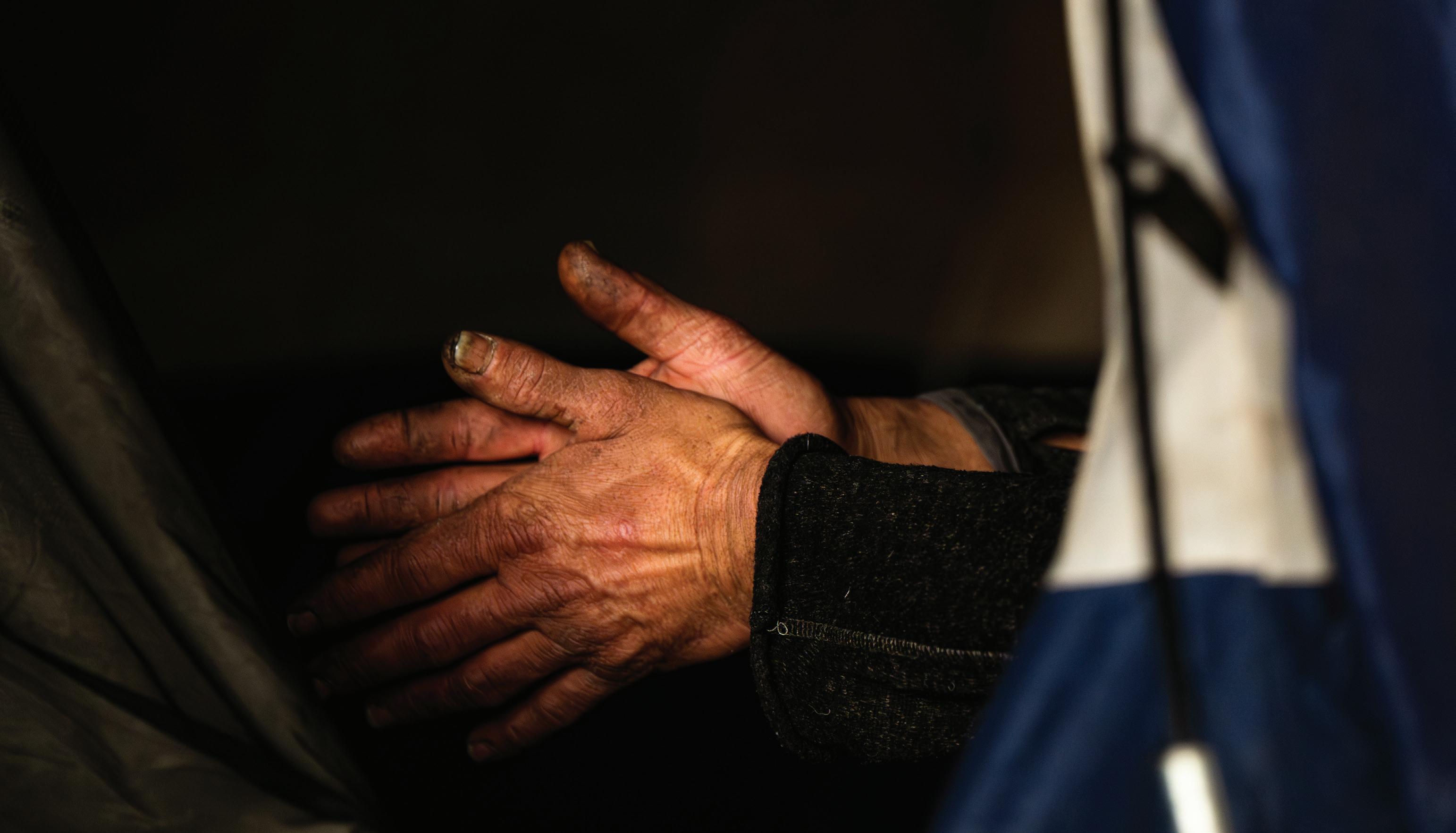
Aurora revamps homeless programs ahead of 2025 navigation campus opening
BY CASSANDRA BALLARD, Sentinel Staff Writer
As temporary homeless shelters close, and the city prepares for the 2025 opening of its “Regional Navigation Campus,” Aurora is undergoing an overhaul of its homelessness services.
Funding for ancillary homeless programs is the latest modification in a sea change of how Aurora will manage a growing homeless population.
The region’s annual “Point in Time” homeless census, taken in January, estimated about 700 homeless people in Aurora, about half of them, “unhoused” or unsheltered. The number is essentially unchanged over the past three years, according to homelessness census records.
Area homeless activist and program managers say the actual number of people without homes is much larger, but no official alternative count exists.
Aggregating the city’s homelessness service providers under one roof was one of the objectives of Mayor Mike Coffman’s “workfirst” plan for addressing homelessness, which the council’s conservative majority approved in 2022. The Navigation Center will, for the most part, accomplish that.
Aurora’s transition also coincides with the impact of the recent Supreme Court Grants Pass V. Johnson ruling, which alters the legal framework for addressing unsheltered populations and informs local policy changes.
Transitions, closures and looking ahead
The city is focusing on reorganizing services as temporary shelter programs in Aurora begin to close.
Most of the changes are linked to the city’s purchase of the Crowne Plaza Hotel Aurora for $26.5 million for the 13-acre property, which it closed on over the summer. The campus is located in the far northwest part of the city, which will become a large shelter and service center in the city.
City officials estimate the total investment in the center, after remodeling, will be about $40 million.
Earlier this year, Aurora identified Advance as a contractor to operate the Navigation Campus programs and shelter, signing a $2 million operation agreement with the non-profit organization.
Changes in the organization and structure of the city’s own programs for homelessness started then, in October.
One Pallet housing location run by the Salvation Army and individual shelter space at Comitis Crisis Center already closed their location to an estimated 100 to 150 people.
The Salvation Army worked with the city of Aurora and partner agencies to permanently or temporarily house more than 60% of our guests, Forker said. More than a dozen people moved to the Salvation Army’s other Safe Outdoor Space in Aurora. Forker said the organization helped everyone during the transitional period by
providing case management services and additional referrals.
“The Salvation Army undertook a major humanitarian effort to relocate residents,” said Jennifer Forker, communications director for The Salvation Army Intermountain Division. “There aren’t many housing options for people experiencing homelessness in the city, so it wasn’t easy.”
Emma Knight, Aurora’s Homeless Programs manager, said the city is collaborating with county partners and Denver to expand shelter capacity, including providing hotel vouchers as needed, while working on long-term solutions for the community.
The Village at Chambers, Pallet housing that was operated by The Salvation Army, ceased operations in September when funding was exhausted. Forker said the location had 56 shelter structures that could house singles or couples.
Its counterpart, the Village at Peoria, which is also operated by the Salvation Army, is set to close in January 2025. The Salvation Army is working with the city to ensure residents are offered permanent or temporary housing. The Village at Peoria had 40 shelter structures that could house between 40 and 70 people, according to Forker.
“The outreach team remains actively engaged with unhoused clients, maintaining a primary focus on connecting them with permanent housing,” Knight said.
Jim Goebelbecker, executive director of Advance Inc., who will be running the Aurora Regional Navigation Center, which is under development and expected to open next year, has taken over operating the Aurora Day Center on the Fitzsimons Medical Campus.
He said that by mid-January 2025, his team will take single homeless people for overnight stays at the Navigation Campus, even though the campus is not planned to open until the fourth quarter of 2025.
“No one will be staying at the campus all day,” Goebelbecker said. “They’re only going to be there for the evening hours until the morning, and then we’ll bring them back to the day center.”
Comitis Crisis Center, run by Mile High Behavioral Health, closed its singles floor at the end of October to refashion the center to provide more family-only space. Starting Dec. 1, the Comitis will reopen the floor to families only.
Miller said the change would provide additional space for Veterans Affairs and Temporary Assistance for Needy Families services. Comitis worked with the Aurora Day Resource Center to rehouse the singles who had to leave, Miller said.
The floors with the families and substance abuse treatment were not moved. Comitis only closed the floor the singles were staying on to convert them for family accommodations.
“None of our families that we were serving were disrupted,” said Anna Miller, director of business development and public relations for Comitis. “Any emergency families—through weather acti-
vation— we’ve been able to accommodate through the remodel.”
Councilmember Alison Coombs, who is on the board of directors for the Mile High Behavioral Healthcare/Comitis Crisis Center, said that some individuals who receive treatment sometimes belong to the families being sheltered at Comitis.
Miller said they do not define a family at Comitis, which could mean an uncle with his niece and nephew.
The recovery unit is an intensive recovery program separate from the rest of the facility, with individual staff, case workers and security. People being treated are required to be sober and do not have a violent background.
“We’ve always served families and children, and we’ve always had an outpatient recovery unit, so there’s never been an issue or a problem,” Miller said. “It has an 87% success rate of people staying sober a year after they receive services. So it’s a very successful program, and we’ve never had an interaction issue.”
As Aurora reshapes its homelessness services, the city remains committed to balancing the needs of families and single adults, Knight said during the work session on Nov. 18. She said the goal is to ensure vulnerable populations receive the support they need.
At the same time, city lawmakers have modified the program toward what Coffman calls a “work first” approach. While some services will be offered to anyone who is homeless, services leading toward permanent housing will require work and sobriety commitments.
Until the Navigation Center is complete and fully open, the Aurora Police Department has permanently assigned two officers to the city’s homeless outreach team to assist with closing camping on public property, primarily as a security measure, said city spokesperson Matthew Brown.
“Officers are trained in empathy, patience, de-escalation tactics and responding to calls involving suspicious people, all of which can help when interacting with someone who might be experiencing homelessness,” Brown wrote in an email.
The city currently gives 72 hours notice to homeless people camping on public property before they remove belongings and clear the camp. Camping or lingering on private property can constitute trespassing. Outreach teams offer resources to individuals before police involvement, Brown said. In some cases, APD’s Crisis Response Team may also assist in outreach efforts.
Cold-weather sheltering will continue at the Aurora Day Resource Center, with support from the Aurora Cold Weather Outreach Team. Jim Goebelbecker, Advance’s Executive Director, said the day center can hold 100 people comfortably and 150, if necessary, for cold-weather sheltering.
Knight said that cold-weather sheltering is “activated” when temperatures reach 20 degrees or below or if it’s cold and snowing.
A homeless man’s hands stick out from his tent under 225 and Colfax during the Annual Point In Time Count in Aurora Jan. 23. Sentinel File Photo


Changes to homeless ordinances following Supreme Court ruling
In the wake of a recent Supreme Court decision of Grants Pass V. Johnson, the Aurora City Council is considering amendments to city laws regarding homelessness.
The Supreme Court ruling cleared the way for cities to enforce bans on homeless people sleeping outside in public places, overturning a ruling from a California-based appeals court that found such laws amount to cruel and unusual punishment when shelter space is lacking.
In a 6-3 decision along ideological lines, the high court found that outdoor sleeping bans don’t violate the Eighth Amendment. Some large western cities had argued that the ruling will facilitate the management of outdoor encampments in public spaces, but homeless advocates said punishing people who need a place to sleep could criminalize homelessness.
At the end of an Aurora Public Safety, Courts and Civil Service Policy Committee meeting on Nov. 14, the discussion skimmed the topic of bringing the city’s policies in line with the new case-law framework.
“We can work behind the scenes on that,” Councilmember Steve Sundberg said, but he and City Attorney Pete Schulte agreed to bring it to a study session in December.
Schulte discussed the city’s ability to end certain requirements previously in place, such as the 72-hour notice or shelter options, before the city takes action. Schulte said the Supreme Court decision earlier this year changed what the city can legally do.
“We don’t have to offer shelter options,” Schulte said.
The city’s possible amendments include removing the 72-hour waiting period before authorities can intervene allowing police or other officials to force people off of public places immediately. Criminal trespassing charges would be a possible consequence for anyone refusing an order to leave.
“We prefer we have options before we abate,” Schulte said. Schulte told meeting members to be cautious with the language used in draft ordinances to ensure compliance with the new legal constraints.
Transitions for homeless programs going into 2025
While the city is spending large sums of money this year and next on addressing homelessness, overall, local funding of many programs is being reduced.
“Funding levels are lower this year, specifically because Marijuana Tax Revenue and COVID funding are no longer available,” city homelessness services officials said in a statement to lawmakers last week. “Additionally, a large sum of our homelessness funding will be allocated toward the Aurora Regional Navigation Campus.”

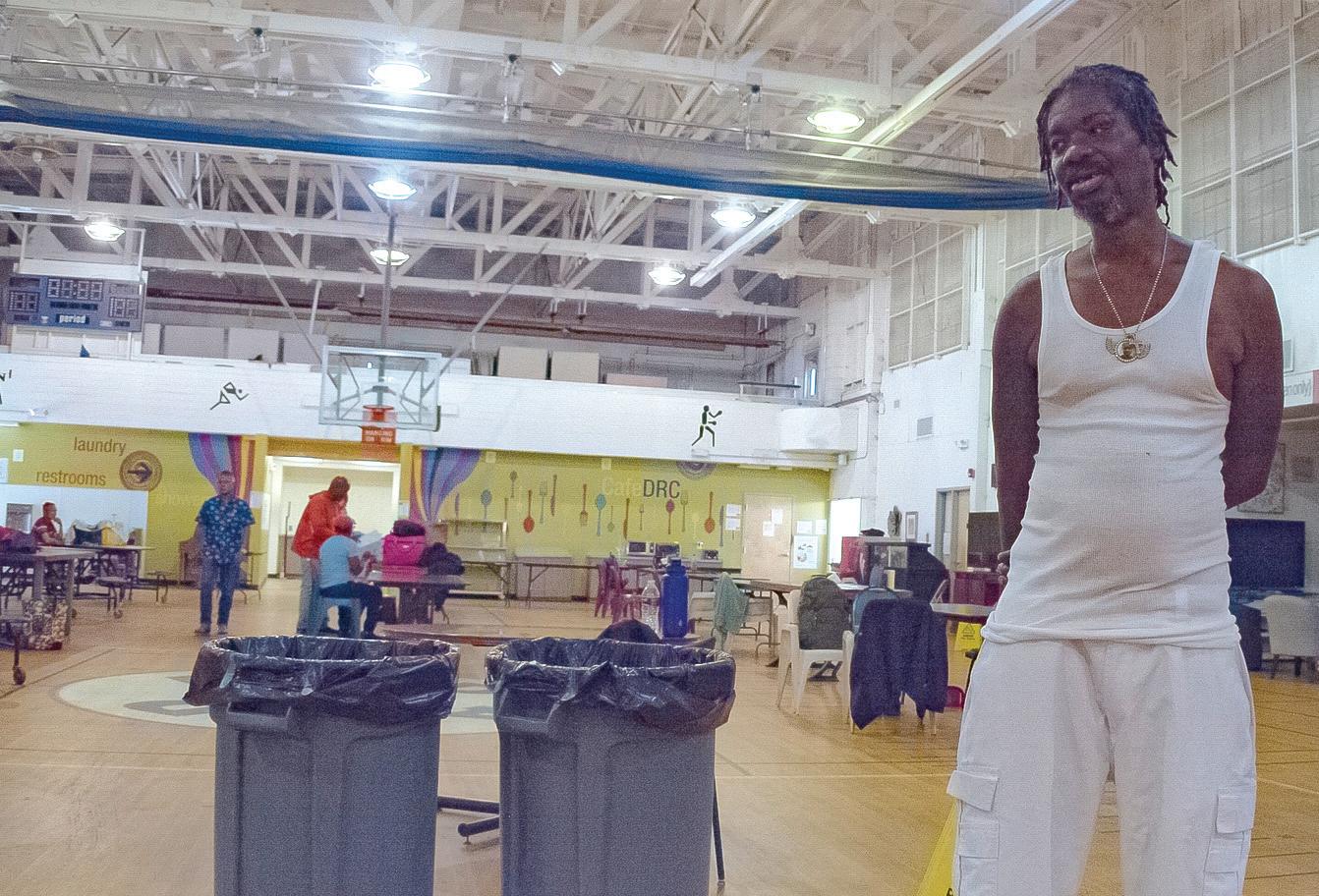
Homeless services contractor Advance signed a $2 million annual operations agreement with Aurora in September to run the Navigation center and provide other services.
Earlier this year, Aurora finalized the $26.5 million purchase of the Crowne Plaza hotel, including 13 surrounding acres, to create the campus.
City officials estimate that a total $40 million investment will be needed to transform the hotel, with funding sources coming from the city, state, area counties and federal government.
While the city has provided some direct services for homelessness for several years, many programs are funded through grants to local expert organizations.
This year, spending for operating the new Navigation center is shaking up where money for other programs goes.
The city will still allocate more than $1.1 million in funding for homeless services not part of the programs connected to the Navigation campus. About $1 million of that $2 million Advance operations contract is expected to come from marijuana tax revenues, according to Brown.
Aurora lawmakers tentatively agreed last week to fund seven grant proposals totaling $1.1 million, turning back another $500,000 in requests. Grant funding will come from federal sources and local marijuana revenues.
“We focus on families this year due to the Aurora Regional Navigation Campus being only for single adults starting in 2025, so our typical funding this year was only for family service providers,” said Knight.
The largest allocation, $300,000, will go to the Aurora Housing Authority for “rapid re-housing,” a social policy program that moves families into homes quickly using short-term rental assistance and services. Those funds also went to homelessness prevention efforts for families. Knight emphasized the program’s success, saying that 100% of families transitioned into permanent housing in the third quarter.
“The Aurora Housing Authority has the highest percentage of positive exits into housing,” Knight said, explaining that its combination of case management and financial support has proven highly effective.
An additional $200,000 will support the Housing Authority’s Tenant-Based Rental Assistance program, providing rental subsidies and security deposit aid for families in need.
The city’s only homeless crisis center for families, Comitis Crisis Center, is slated to receive about $238,000 in total grant funding next year.
Aurora Mental Health Care will receive additional funding for the Aurora Cold Weather Outreach Team, which finds temporary night stays for homeless people in the city during cold weather.
Non-Navigation Center Grant Funding
Allocation for Homeless Services in Aurora in 2025
Aurora Housing Authority
Total Amount Recommended: $300,000
Source: Marijuana Tax Revenue Use: Rapid Rehousing and Homelessness Prevention (case management, housing navigation)
Aurora Housing Authority
Total Amount Recommended: $200,000
Source: HUD HOME Tenant-Based Rental Assistance (TBRA) Use: Rental Assistance and Security Deposit Assistance
Aurora Mental Health Care
Total Amount Recommended: $25,000
Source: Public Safety Use: Aurora Cold Weather Outreach Team (ACOT)
Mile High Behavioral Healthcare (Comitis)
Total Amount Recommended: $138,219
Source: Emergency Solutions Grant (HUD) Use: Family Shelter (operations)
Bridge House – Ready to Work Program
Total Amount Recommended: $74,870
Source: Emergency Solutions Grant (HUD) Use: Rapid Rehousing and Homelessness Prevention
Family Tree
Total Amount Recommended: $100,000
Source: Marijuana Tax Revenue Use: Family Shelter (case management and operations)
Gateway Domestic Violence
Total Amount Recommended: $150,000
Source: Marijuana Tax Revenue Use: Shelter (case management, housing navigation, supplies)
Bengemin Williams stands on Sable Blvd and Colfax Ave. in Aurora during the Point In Time Count
“It’s rough on the streets,” Williams said. Sentinel File Photo
Clothes and trash are spread on the ground under a tree where people sleep on Friday May 13, 2016 at Denny’s. Sentinel File Photo
Sentinel File Photo
The Crowne Plaza Hotel is about to become Aurora’s “City’s Homeless Navigation Campus” at 15500 E 40th Avenue.
Sentinel File Photo
Right: From left, senior Christopher O’Donnell, junior Dalton Sisneros and junior Brayden Forte teamed with Anthony Chen (not pictured) to finish second at the Class 5A boys golf state tournament. The trio also earned their way onto the 2024 Aurora Sentinel All-Aurora Boys Golf Team, which is based on state tournament performance.
Below top: Grandview senior Michael Rosman finished 8-under-par over two days at the 5A state tournament to finish as the state runner-up. The Centennial League medalist secured an All-Aurora spot with his performance.
Below middle: Eaglecrest junior Gregory White finished as the Centennial League runner-up and made the 5A state tournament for the third time in as many seasons on his way to All-Aurora honors.
Below bottom: Senior Sam Walker tied for 28th place at the 5A state tournament for Continental League team champion Regis Jesuit, which landed him a spot on the All-Aurora team.
PHOTOS BY COURTNEY OAKES/AURORA SENTINEL

While football holds on in a few places around the state, the 2024 fall prep sports season has concluded in the Aurora area.
And what a season it was, as a good number of local teams brought home state runner-up trophies and several individuals made title runs themselves.
The AuroraSentinelwill recognize the best of the best in fall prep sports in this and upcoming issues, with expanded coverage at aurorasentinel.com/preps.
Fall stars, Part I
STATE RUNNER-UP CHEROKEE TRAIL
HEAVY ON ALL-AURORA BOYS GOLF TEAM
The boys golf season was the first to conclude in the fall and turned out to be absolutely outstanding for Aurora area programs and individual. The season was so good, the AuroraSentinelAll-Aurora Boys Golf Team needs six first team members, as opposed to the usual five.
BY COURTNEY OAKES Sports Editor
That is largely due to the performance of Cherokee Trail, which came into the season with its top group fully intact from the one that tied for second place in the 2023 5A state tournament. Three of those holdovers — senior Christopher O’Donnell and juniors Brayden Forte and Dalton Sisneros — make up half of the All-Aurora team, which is rounded out by Grandview senior Michael Rosman, Regis Jesuit senior Sam Walker and Eaglecrest junior Gregory White.
Cherokee Trail moved forward with a new coach in Ryan Steves, but didn’t skip a competitive beat with so much experience back in the fold. The Cougars finished as the Centennial League runners-up behind the same Cherry Creek team that bested them by three strokes in the 5A state tournament.
Leading the way was Sisneros, who made big strides from his previous season. During the regular season, he earned All-Centennial League first team honors with the fifth-most points earned, as he capped the season with a victory in the league tournament at Saddle Rock G.C. Sisneros advanced with the team to the state tournament (after the Cougars won the Northern Region), where he moved up from a tie for 14th as a sophomore to a three-way tie for third place with rounds of 2-under 69 and 3-under 68.
Forte also had a tournament victory to his credit with a 64 he shot at City Park G.C. to help Cherokee Trail win the City League Invitational and he was the individual runner-up at the Centennial League tournament at South Suburban G.C. on his way to all-league first team honors. He couldn’t exactly duplicate his sophomore season, when he finished second individually at state, but he carded a 1-under 70 on the second day to lift himself into a tie for 15th. O’Donnell served as a strong and steady presence for the Cherokee Trail program for four years and qualified for state each season, putting him alongside 2016 graduate Bradley Scalia as the program’s four-time state qualifiers to date. He finished 11th in the Centennial League standings, while he tied for second in the Northern Regional to help his team advance to state. O’Donnell shot a 2-under 69 in his final state round (eight strokes better than his first round) and finished in 28th place.
Individually, the top local player throughout the season was Rosman, who continued the upward trajectory of his game with a fantastic final prep season as he attempted to concentrate on the setup and posture of each of his shots and let the scores fall into place. The scores most certainly did that for Rosman, who had a round of 10-under-par 62 at Aurora Hills G.C., which helped him on his way to winning medalist honors in the loaded Centennial League. Rosman shot in the 60s in three of five league rounds to earn the league’s top individual spot by four points. Rosman went on to qualify for his third career state berth and once there, he made a run at the state title before he finished as the state runner-up by a single stroke to Castle View’s Gavin Amella. Rosman finished 8-under-par over the two-day tournament at CommonGround G.C. to record the Grandview program’s highest-ever individual state finish. An individual state qualifier as a sophomore and junior, Rosman also enjoyed having his entire team qualify for state. White finished as the Centennial League runner-up behind Rosman with two tournament victories (at Meadow Hills G.C. and South Suburban G.C.) in the four league events he played, while he shot 70 or lower in all of them. He qualified for a third career trip to the state tournament and finished it with a 2-under-par 69, which brought him into a tie for 15th place individually.




ABOVE: Regis Jesuit seniors Spencer Buege, left, and Aiden Prananta played only one season on the varsity team, but qualified for the Class 5A individual state tournament and finished as No. 4 doubles state champions. BELOW
TOP: Regis Jesuit sophomore Alec Rodriguez-Fields earned the All-Aurora Boys Tennis Team first team position at No. 1 singles with his individual 5A state championship. BELOW BOTTOM: The Regis Jesuit No. 1 doubles team of junior Clay Dickey, left, and sophomore Vlad Sukhovetskyy bounced back from a semifinal loss at the 5A individual state tournament and claimed third place with a decisive victory over a team from Fairview, then turned around and won their match in the 5A team state tournament.
PHOTOS BY COURTNEY OAKES/AURORA SENTINEL


from 13
Walker had an outstanding final season in which he helped Regis Jesuit win the Continental League team championship and qualify for the state tournament as a team. The recent Trinity (Texas) University signee tied for first place in the opening league tournament of the season at King’s Deer G.C. and also claimed medalist honors at the 5A Central Region tournament with a round of 6-under-par 66. In his second state tournament, Walker shot a 1-under 70 in his final round to improve by seven strokes from the opening round and lift himself up from 44th after the first day into a tie for 28th with three other players, including O’Donnell.
REGIS JESUIT, 5A TEAM STATE RUNNER-UP, DOMINATES ALL-AURORA BOYS TENNS TEAM
The level of play in boys tennis rose noticeably across Aurora in the 2024 season, but Regis Jesuit remained the standard when it comes to locals.
Coach Laura Jones’ Raiders — who found success in both the Class 5A team and individual state tournaments — had all seven lines earn first team honors on the 2024 AuroraSentinelAll-Aurora Boys Tennis Team, which is based on results of both tournaments.
For the second straight season, Regis Jesuit finished as the team state runner-up, as it dropped a dramatic 4-3 decision to the Cherry Creek for its only dual loss on the season, while all three singles players and four doubles teams placed in the top three in the individual state tournament, which included two state champs.
score in the team final. Sebastian Wright dropped consecutive matches to Cherry Creek’s Aidan Washer in the individual and team state matches (both in three sets) and finished with just three losses on the season, all to Washer, who he beat once.
The abundance of singles talent created a super No. 1 doubles duo for Regis Jesuit of junior Clay Dickey and sophomore Vlad Sukhovetskyy, who played Nos. 1 and 3 singles, respectively, last season. Sukhovetskyy was a state champion individually as a freshman and he ended up as part of a third-place No. 1 doubles team with Dickey, who earned his first state medal when the Raiders steamrolled past Fairview’s Ian Schwartz and Sam Rich in the third-place match. Sukhovetskyy and Dickey’s individual title quest was waylaid in a three-set semifinal by Cherry Creek’s Luke Norford and Trevor Robinson, who they were able to turn the tables on in the team state final with a 6-4, 6-4 victory.
For more on these stories, visit sentinelcolorado. com/preps
The No. 2 doubles team consisted of senior KC Eckenhausen and junior Adam Rydel, who finished as the 5A individual state runner-up behind the Cherry Creek team of Wills Possehl and Tyson Hardy. Eckenhausen and Rydel rebounded with a 6-3, 6-4 win over the Bruins in the team state match. Eckenhausen finished in the top three in all four of his varsity seasons, which included a state championship in his freshman season, while Rydel has three topthree finishes and counting.
Sophomore Alec Rodriguez-Fields, who moved up a spot from his first varsity season into the No. 1 singles position, led the way for Regis Jesuit. He capped an outstanding individual season with a 3-6, 6-2, 6-4 win over Pine Creek freshman phenom Braylon Desquitado, who came into the match undefeated. In 26 matches, Rodriguez-Fields suffered just three losses on the season, two of which came to Kent Denver star and 4A No. 1 singles state champion Nathan Gold and the other came in the team state final to Cherry Creek’s Charlie Stern.
The arrival of talented freshman twins Blake and Sebastian Wright created a big shuffling of the lineup for Regis Jesuit, as they earned the Nos. 2 and 3 singles spots, respectively. Fittingly, the Wrights had almost identical seasons and both earned the same runner-up finish in the individual state tournament. Blake Wright’s season was near-perfect, as he triumphed in all of his matches save the No. 2 individual final, where he fell to Cherry Creek’s Jack Loehr 6-3, 6-4, just two days before he won by virtually the same
The No. 3 doubles team of senior Carl Siegel and sophomore Edward Samuelson played together for the first time this season and went all the way to the individual state championship match, where they lost a three-setter to Cherry Creek’s Sam Migliaccio and Devan Shah, who also rallied to beat them in the team state final in the match and decided the final outcome. Siegel dropped a spot in the lineup after two seasons at No. 2, but finished as runner-up for a second straight campaign, while it was Samuelson’s first state medal.
The No. 4 doubles team of seniors Spencer Buege and Aiden Prananta each played just one varsity season for Regis Jesuit, but it was an impactful one. The duo captured the 5A state championship at their position with a 7-6, 6-4 triumph over Cherry Creek’s Mitch Kelly and Truman Wooden, who were able to flip the result in the team state championship final.
RENNER PACES 5A RUNNER-UP OVERLAND ON ALL-AURORA GYMNASTICS TEAM
Despite an imperfect finish, the Overland gymnastics team maintained its long-standing position as one of the state’s top teams.
See ALL-AURORA, 13
ICE HOCKEY
Grandview falls to Castle View 4-3 in debut game
The first ever varsity game for the Grandview ice hockey program took place Nov. 22 at the South Suburban Recreation Center and the Wolves came up just short in a 4-3 loss to host Castle View.
Coach Josh Schaeffer’s team got on the scoreboard first as junior Owen Kulczewski — who played for the Cherry Creek co-op team last season — picked up Grandview’s first varsity goal, though the SaberCats tied it up by the end of the first period.
Hunter Simons scored in the second period and Evan Stellino tallied in the third for the Wolves, who fell behind by two goals at one point.
Junior goaie Linkin Alisasis turned aside 34 of the 38 shots he faced.
WEEK PAST
The week past in Aurora prep sports
SATURDAY, NOV. 23: The Cherry Creek ice hockey team opened its season with a 5-1 road win against Resurrection Christian. Austin Katz had two assists and joined Shota Badasyan, Grayson Helm, Cooper Huang and Davis Ritter with goals for the Bruins. Goalie Payton Mills (Overland) stopped 19 of the 20 shots he faced between the pipes.
...At the Nike Cross Nationals Southwest Regional cross country meet at Coyota Run in Mesa, Arizona, Grandview’s Evan Valencia ran a time of 15 minutes, 42.46 seconds, to finish as the runner-up in the Large 3 boys race, which included 320 runners. As a team, the Wolves were ninth among 26 teams. In the girls Large 3 race, Emerson Hensler led the way for Grandview in 36th place....MONDAY, NOV. 18: The full compliment of winter prep sports — boys and girls basketball, boys and girls wrestling, girls swimming and skiing — held practice and tryouts for the first time. Ice hockey started the previous week and is into regular season play.

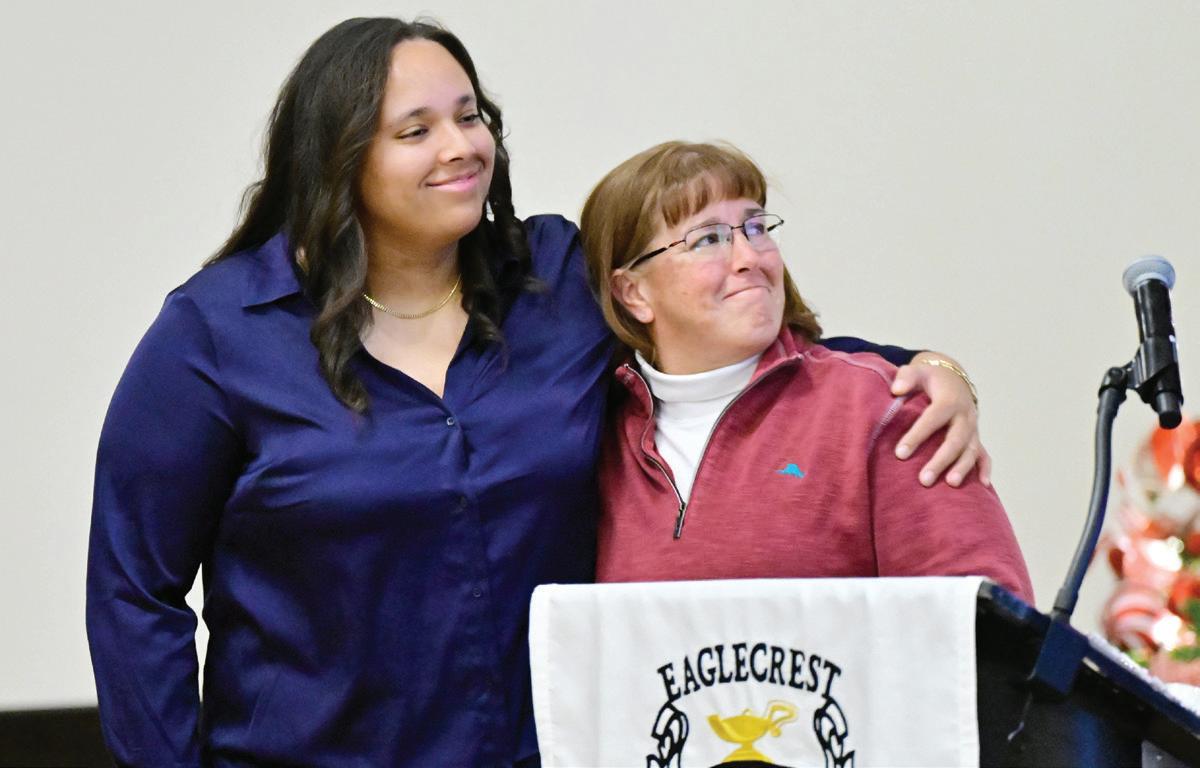
HALL OF FAME Eaglecrest inducts HOF Class of 2024. including first team honoree
The Eaglecrest High School Athletics and Activities Hall of Fame held its induction ceremony Nov. 21 at Heritage Eagle Bend with a group that included the first team honoree in its 10-year history.

The 2006 girls volleyball team that won the Class 5A state championship and finished a perfect 31-0 was part of the Class of 2024, which also saw individuals Kailey Wilson (softball) and Dave Howshar (volunteer) honored. Former basketball star Colbey Ross was also selected, but unable to attend the ceremony.
Wilson was introduced by Eaglecrest softball coach Yvette Hendrian,
Coach Lisa Sparrow and her Trailblazers walked away from the Class 5A state meet at Thornton High School with a slightly less fulfilling feeling given how some events transpired, but it didn’t prevent them from landing more hardware.
Only Mountain Range — led by individual standout Frankie MacAskill — earned more points than Overland, which had a season-high score of 181.900 to finish as the state runner-up for the sixth time in the past nine seasons.
While Overland’s state team was largely comprised of seniors, it was junior Ainsley Renner who led the way. Renner — a Grandview student — finished third in the 5A all-around competition in 2023 and posted a second straight top-five finish as she was fourth with a score of 37.275 that put her just 0.75 of a point behind Denver East’s Lyla Allman for third. MacAskill finish second and Arvada West’s Layla Petz first. Renner also was the Region 1 and Centennial/Continental League all-around champion.
Renner earned the majority of the individual spots on the 2024 Aurora Sentinel All-Aurora Gymnastics Team, which is based on state meet results, while she is joined by senior teammate Maia Howell.
LEFT: Archer Arnold (13) and the Grandview ice hockey team dropped a 4-3 contest to Castle View Nov. 22 at South Suburban Rec Center in the first varsity contest for the program BELOW LEFT : Kailey Wilson, left, and Eaglecrest softball coach Yvette Hendrian watch a video piece that is part of the Eaglecrest Athletics & Activities Hall of Fame induction ceremony Nov. 21 at Heritage Eagle Bend . Wilson was part of the Class of 2024 for her standout softball career at Eaglecrest. BELOW RIGHT: Courtney
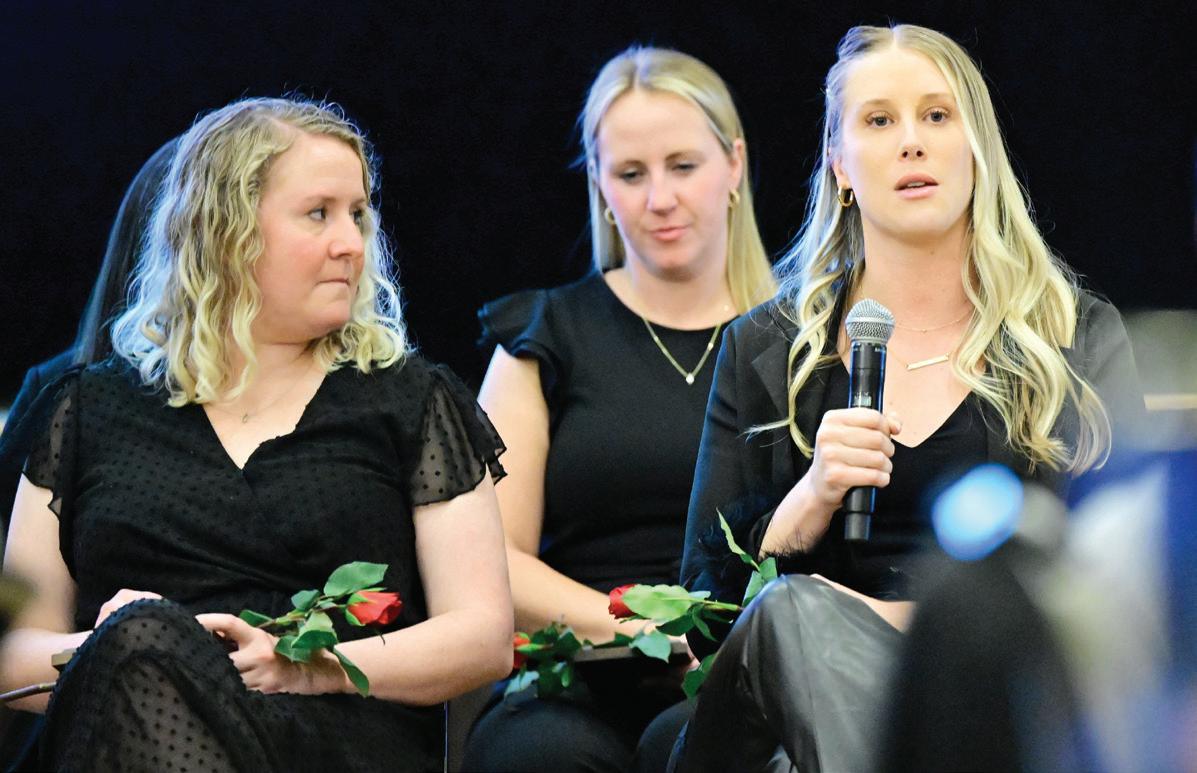
while boys wrestling coach Javier Quintana presented Howshar. Eaglecrest assistant principal Tanya Bond — the head coach of the 2006 girls volleyball team — introduced more than a dozen players and coaches from the team in attendance and each shared memories of the historic season.
The girls volleyball team was made up of Courtney Karst and Sheila Olaechea (both HOF members in-
ducted as individuals) along with Darcy Schwartzman, Jordan Kissman, Courtnee Pedone, Bri Steger, Alex Beard, Carly Sheridan, Kate Mara Luistro, Miranda Wooten, Miranda Christian, Katie McIlvain, Alyson Cookes and Morghan Dernocoeur, while the coaching staff under Bond was rounded out by her husband, Chad, Bob Poulter, Lisa Wood, Kimberly Rutt and Christen Wilton.

The vault was not an overall team strength of the Trailblazers, but it was a place where Renner shined. She earned a score of 9.550 on the event in the team portion of the state meet, while she followed that up with a 9.425 in the individual event finals to get on the medal podium in fourth place.
Renner’s second-best score of any event at the state meet came on the floor exercise (which was particularly strong for Overland as a whole), as she earned a 9.525 in the individual event finals that earned her another fourth-place medal. She finished with a 9.500 in the team competition.
Renner also grabbed All-Aurora honors on the uneven bars, where she earned her top finish of third. She had a fall late in her routine in the team competition, which dropped her to an 8.900 and into the final spot that qualified for the individual event finals. She made the most of the next chance with a 9.425 to take third. Howell finished one place behind Renner in the individual event finals of the balance beam, but she was the team’s most consistent on the event in the postseason. She scored 9.450 in the team competition to pace Overland and her 9.375 put her in a tie for fourth place in the individual finals.
›› ALL-AURORA, from 14
Beam-ing: Senior Maia Howell was the Overland gymnastics team’s most consistent performer on the balance beam in the late season and she earned the spot for that event on the 2024 Aurora Sentinel All-Aurora Gymnastics team. Photo by Courtney Oakes/ Aurora Sentinel
High bars: Junior Ainsley Renner transitions between bars during her uneven bars routine during the Class 5A state gymnastics team championship meet. Renner earned the All-Aurora spot in the event as well as three others for her performance in the 2024 season. Photo by Courtney Oakes/Aurora Sentinel
Unified Bowling on a roll

The 2024 Unified Bowling state championship meet took place Nov. 22 at Bowlero Lone Tree with two Aurora teams (Rangeview and Vista PEAK Prep) among 28 teams in the field. The Raiders’ team of sophomore Brayshawn Jones and freshmen Isabelle Crews, Porter Easton, Erick Figueroa Rojas and Skyler Garcia-Bluh — and coached by Michael Lubet — earned a score of 401 in five games of Baker set play (in which a different player rolls each ball) that put them 24th in total pinfall. Coach Micah Gronvold’s Vista PEAK Prep team (which won its regional championship to qualify for state) of seniors Hannah Bliss, Jaymz Kaeser, Jayden Kitchin and Amelia Miller, plus junior Robert Wilson, had a score of 347 to finish 27th. Visit SentinelColorado.com/preps for more.
PHOTOS BY COURTNEY OAKES/AURORA SENTINEL



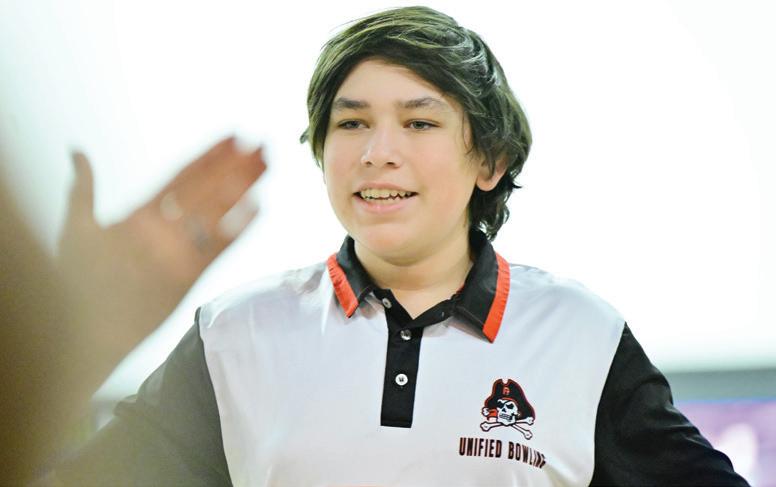
Editorials Sentinel
$2 needless city tax war will leave
millions
in damages for hallow victory
The Aurora City Council’s tragic case of buyer’s remorse is being complicated by an even worse case of one bad turn deserving another. Aurora’s self-inflicted problem this week was created in the fall of 2022.
Councilmember Danielle Jurinsky, and now-gone Councilmember Dustin Zvonek, first proposed, then demanded that the city repeal its $2 per employee, per month head tax, created in 1986.
Zvonek resigned from city council Oct. 31.
The levy, similar to those in Denver, Glendale and Greenwood Village, is also called an “occupational privilege tax.” It was created to raise money through employers whose employees and business regularly used city streets and public safety services, but didn’t pay taxes like residents do.
The tax requires each employee to pay the city $2 a month to work in Aurora, and it requires an employer to pay $2 a month for each employee they hire in the city.
Jurinsky passionately made her case in 2022 that the tax was excessively burdensome on company finances and bookkeeping.
The only real support she got for the measure was from Zvonek.
Sure, most employees would say that $24 a year is $24 a year. And an employer with 10 employees can, also, surely find good use for $240 a year.
The bigger problem is that Jurinsky’s hyperbole about the tax was just that. Ask any small business owner about their wish list of things for city government, or any government, to fix, and the $2 head tax does not make the cut.
The even bigger problem is that the tax raises $5.9 million a year, because this city of 400,000 people also boasts about 200,000 employees working for Aurora businesses.
And, you can guess where this is going, the city needed that $5.9 million in 2022, and it absolutely needs that revenue after Jan. 1, 2025, when the tax was scheduled to be repealed.
In 2022, Jurinsky said that cutting the $2 per employee per month levy would send a message to the free world that Aurora is “business-friendly.” Without the $2 fee, per person, per month to hire a $40,000 or $50,000 a year employee, businesses would come running to set up shop in Aurora, she claimed.
“The path forward here is attracting businesses,” Jurinsky said then. “This is what Aurora is doing. Aurora is leading the way.”
She said the $5.9 million hit taken by the city could be made up if Aurora attracted “a couple” of “fancy steakhouses.” Taxed at the city’s current sales tax rate of 3.75%, it would take about $157.4 million in new sales to make up for the cut. The “couple of fancy steakhouses” would have to sell about 5.25 million $30 steak dinners to make up the lost tax revenue.
So now, the biggest problem is that, short of cash, the northeastern and southeastern parts of the city, places where rapid growth has created large communities far from any fire stations, are in desperate need of two additional fire stations.
Residents there must pay higher house insurance premiums because of the distance, and as council members Curtis Gardner and Francoise Bergan pointed out, it’s a public safety issue.
For $6 million, the city could build those two fire stations, the two city council members proposed a few weeks ago, by not repealing the $2 employee head tax. Also, there would be some additional money going forward to further fund police and fire department services for the entire city.
Jurinsky had a series of public and behind-the-scenes meltdowns over the plan, which gained steam fast among the other city council members.
She accused fellow lawmakers in a city council meeting of plotting against her. The Sentinel later obtained a series of obscene and threatening text messages she sent to some council members, excoriating them for working to undo a tax-repeal that made little sense to anyone other than Jurinsky since its inception.
““I fu***** campaigned on that you fu***** pieces of shit! AND FU** YOU DUSTIN!! And I hear you’re a co sponsor, Francoise. You can definitely go fu** yourself! You’ve never owned a business or a fu***** thing in your life you pretentious bitch!”
Despite the invective blowout, the plan moved forward to keep the $2 head tax, unless Jurinsky could find $6 million in the city budget to cut elsewhere.
It never happened.
Faced with losing the measure by one vote, the sponsor of the no-repeal measure, Bergan, tabled the bill, with no comment.
Only Councilmember Stephanie Hancock, who supported Jurinsky’s mission to explode the number of businesses clamoring to open their doors in Aurora after the $2 head tax dissolves, made any comment. She insisted that whether anybody but large, multi-billion companies like FedEx and Raytheon cared about the head tax, it was important for the city council to stay the course.
Less important, are two critically needed fire stations, clearly not in the neighborhoods these city lawmakers live in.
If Aurora is serious about cutting real taxes on small and large businesses, cut the city’s 3.75% use tax, levied against things like furniture and equipment. That, however, would require even bigger cuts in the city budget.
The biggest boon to Aurora businesses and residents alike would be for this city council to cease the never-ending melodramatics and factless forays onto Fox News for political attention fixes.
Aurora residents and business owners need six of the 11 members of the City Council to form a caucus to rein in the damaging histrionics and grandstanding so that the public’s best interests are the priority every Monday, and not petty political gotchas and personal interests. Keep the tax. Build the fire stations. Put the city back on track to financial and governmental stability.


Why kids can’t walk alone
Astory from my childhood came to mind as I read a recent ABC News report about a mother who was arrested after her son was seen walking alone to the Dollar Store a half mile away from his home.
Brittany Patterson of Mineral Bluff, Ga., was at a doctor’s appointment with her other child when her nearly 11-year-old boy left his house and was spotted by himself.
Somebody alerted the police who took the boy home.
A few hours later, the cops went to Patterson’s address, cuffed her in front of her kids, dragged her off to the police station for a mugshot and charged her with willingly and knowingly endangering “her juvenile son’s bodily safety.”
The Division of Family and Child Services demanded that Patterson comply with its safety plan, which required her to download a GPS app to track her son’s location.
She refused, God bless her. And it wasn’t long before her “crime” and the debate over “free-range children” became a hot topic on social media.
As a columnist, I’ve reported for 30 years on the evolution of the growing — and unjustified — fears parents have about the safety of their children.
More and more, “free-range” parents who attempt to give their kids some of the freedom they had as children face the wrath of family, neighbors and local authorities.
When I was a kid in the ‘70s it was much different — and much better.
I was free to go all over the place on foot or on my bike, just so long as I got home on time for dinner and arrived home at night when the streetlights came on.
We kids were on our own all the time and our parents weren’t terrified if we were out of their sight.
When I was just 6, I disappeared from my
house and took off alone to a mom-and-pop convenience store three blocks away.
My older sisters Krissy and Kathy, 7 and 9, respectively, were supposed to be watching me while my mother was downstairs doing laundry. But to get me out of her hair, Krissy gave me a coin she’d made from a piece of cardboard and told me I could get candy with it at the little store.
Naturally, my mother was upset when she saw I was missing. But I was found in short order and no neighborhood worrywart ratted out my mom to the cops.
That was because back then there were only three network television channels and parents’ fears weren’t being stoked 24/7 by sensationalistic news stories about kidnapped children on cable news channels.
Despite today’s increased parental paranoia, being kidnapped is no more likely for kids now than it was in the ‘50s, ‘60s and ‘70s.
Consider: There are roughly 40 million elementary-school-age children in America today.
Each year, about 115 children are kidnapped, according to Child Watch of North America — whereas nearly 140,000 are injured in car wrecks every year.
In spite of that reality, our TV and cable news media have spent decades exaggerating and inflaming fears about the safety of our children — and pretty much anything else that gets ratings.
Thus, we’ve evolved into a fearful culture that’s afraid to allow our children the freedom to roam and discover and learn on their own.
God help any parent today whose 6-year-old might slip out of the house with a paper coin his sister made for him!
See Tom Purcell’s syndicated column, humor books and funny videos featuring his dog, Thurber, at TomPurcell.com. Email him at Tom@TomPurcell.com.

TOM PURCELL, GUEST COLUMNIST








For all inquiries regarding purchase of the bonds, please contact: Obituary
Clay Allen Betz June 11, 1962 - November 17, 2024


Clay was a loving and devoted husband and is survived by his wife, Connie; and Clay’s three children, Tyler (Jenn), Lyndsay and Cheyenne; his brothers, Steve (Sallie) and Donald Joseph (Kathryn); grandson, Kaidan.
MASS OF CHRISTIAN BURIAL will be held Friday, November 22,2024 at 10:30 a.m. at St. Elizabeth Ann Seton Catholic Church, 5419 N 114 St, Omaha, NE 68164. In lieu of flowers, please honor Clay with a donation to the Wounded Warrior Project.

Use of Proceeds:
Bonds will be used to fund District-wide improvements in Safety & Security, Innovation, New Construction/ Renovations, Technology, and Maintenance
Order Period: Priority for Local Retail Buyers




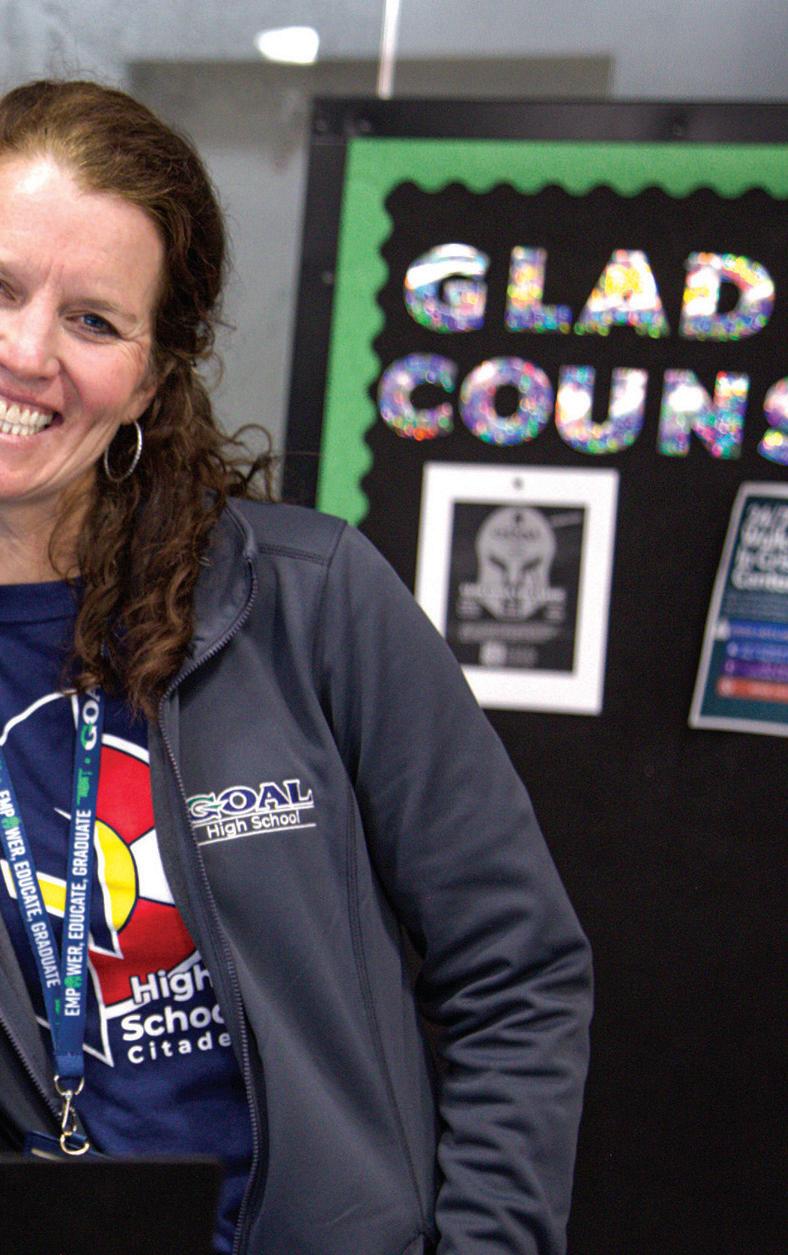


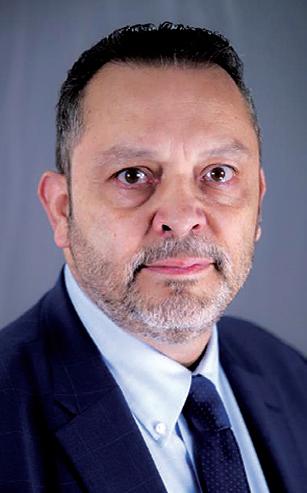
Our employees are at the heart of everything we do. These accolades are a testament to their dedication and passion. It is important that every member of our team feels valued and empowered.

Ron Vigil, Senior Director of Human Resources
